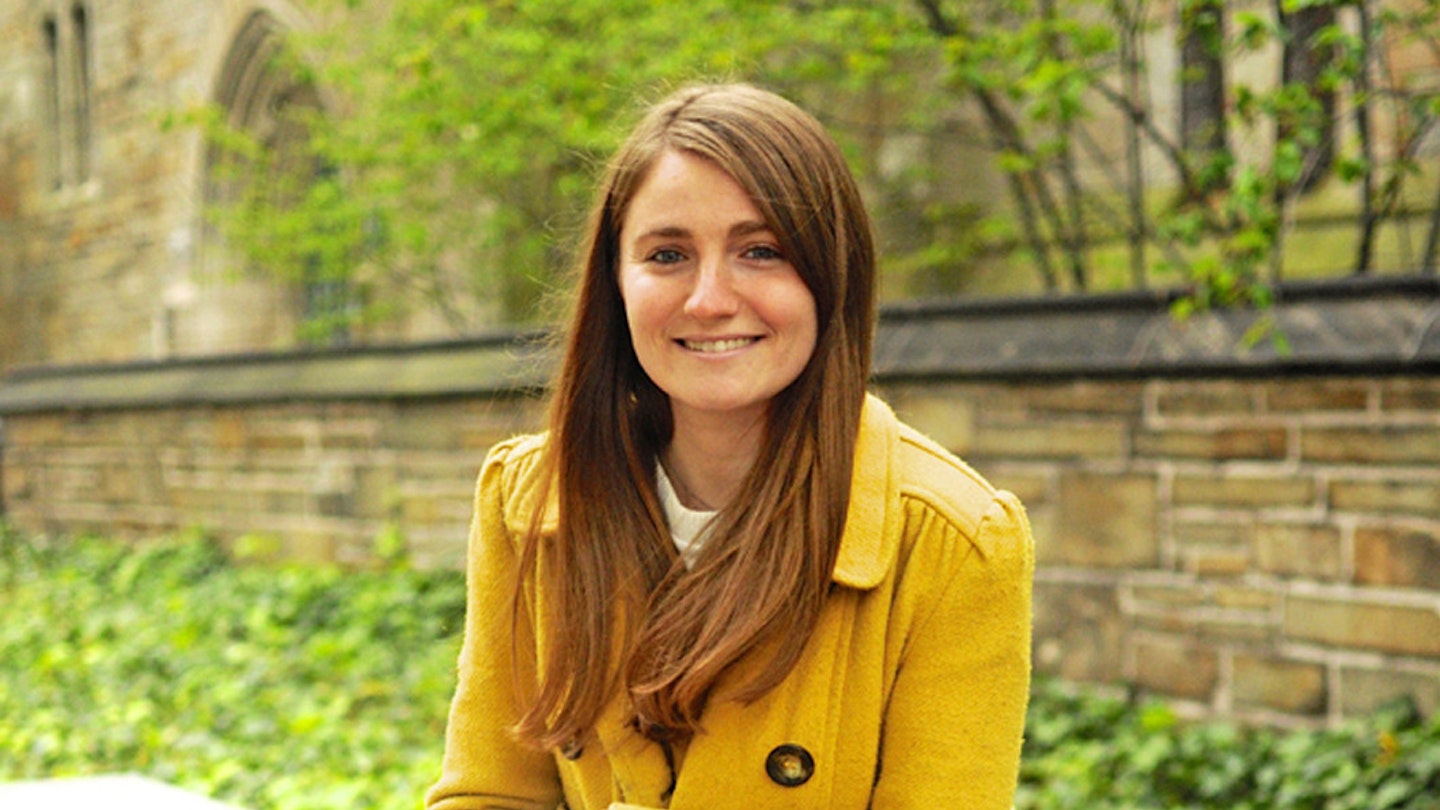
**As essay collection The Opposite Of Loneliness wins Goodreads Nonfiction Book Of The Year, we speak exclusively to Marina Keegan's best friend Yael Zinkow, 24, about the grief of having Marina's future cruelly snatched away at just 22.
**
When I walk into my local bookstore, I can’t help but beam with pride: on display is a book by my best friend, Marina. A collection of her essays, The Opposite Of Loneliness, has caused a buzz all over the world, capturing the hope and possibility of today’s 20-somethings. Yet alongside my delight, there’s overwhelming sadness that Marina isn’t here to see her success – my wonderful friend was killed in a car accident just a week after we graduated in May 2012, snatching away her future and leaving me and her family overwhelmed by grief.
I have a thousand memories of my talented, beautiful friend, who could make me laugh more than anyone else I knew. The time we drunkenly recorded ourselves performing the songs from Wicked, but couldn’t sing because we were giggling so hard; how she was such a creative talent, but had the most appalling spelling; the way she could solve a Rubik’s Cube in 15 seconds.
I met Marina aged 18, on my first day at Yale, a top Ivy League college where I was studying psychology.
Marina was majoring in English and had been randomly assigned to be my room-mate. I was in awe of her – she seemed so put-together and perfect, yet the beaming brunette who hugged me was incredibly warm and funny too. That night we went out and got drunk, laughing with disbelief that we shared the same late-October birthday.
Pretty soon we had our own little rituals. Marina was manically busy, but most evenings we’d meet for sushi. Whenever either of us had to go away we made little ‘Welcome Back’ signs to pin to the door. She took me under her fashion wing too, professing horror at my dowdy outfits and lending me her clothes.
And she was a brilliant ally when it came to matters of the heart, dictating perfect text messages when I was agonising over some guy. She was never without a boyfriend – everyone who met her fell a little bit in love with her.

Marina was always curious, interested in the world around her. Now I wonder if she had a sense that she didn’t have as much time as the rest of us. She barely slept, staying up long after I went to bed and rising before I woke – reading and writing voraciously. No one was in any doubt that she would be a published author one day. Her work was profound and beautiful; everything you read revealed something new about her. It was no surprise when she clinched a sought-after job on The New Yorker, which she was due to start after a holiday with her family. On our graduation day in 2012, we hugged goodbye, not knowing this would be the last time we’d see each other.
A week later, Marina was dead, killed in a car crash as she travelled with her boyfriend to her father’s birthday dinner. Her mum left a message saying she needed to talk to me. I knew straight away. The shock was immense. I remember sitting in the bathroom, helpless with grief. In the dazed days that followed, anguish came in waves.
It didn’t help that our friends had scattered after we graduated. Numb, we texted and Skyped, pouring out our grief online until, three months later, we were able to stage our own memorial, gathering in New York with her parents for a fringe performance of a musical she’d written the year before she died. Marina’s parents knew their daughter had always wanted to be a writer, and after her death they set about making it happen, collating the stories, essays and poems she’d compiled into a book. While this was harrowing, the fact that her writing has struck such a chord – an essay published online on Yale Daily News went viral with 1.4 million hits – has brought them a lot of comfort.
Two years on, her death remains a constant loss, one that sneaks up on me every day – a song by Sufjan Stevens, a singer Marina adored; a wall of her favourite colourful tights in a store. Even my mum struggles to know how to comfort me – she’s never lost anyone so young.
Since Marina died I’ve had two birthdays, and a third is on the horizon. It’s tough, because as I celebrate with friends I am marking her absence too. I wonder where she would have been now - probably, as I always imagined, signing copies of her book in my local bookstore. Now, instead, the book is there without her. It’s a comfort to all her friends that the brilliant talent of a girl we’re convinced would have been the voice of a generation is being recognised. For those who loved her, it is just about the only thing about her death that makes sense.
‘The Opposite Of Loneliness’ is £14.16, Simon & Schuster
